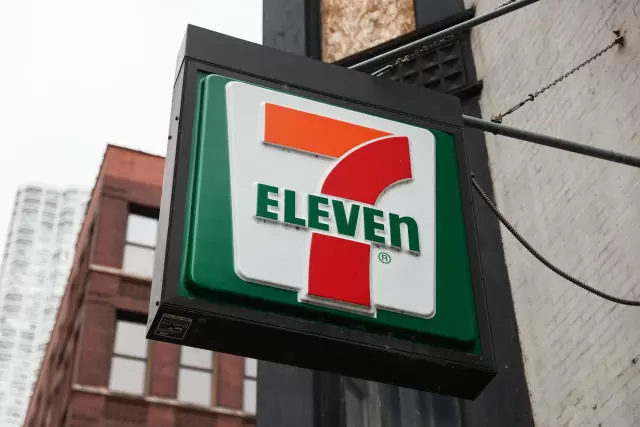7-Eleven to close more than 400 locations. Here’s what you need to know.

7-Eleven, a major convenience store chain with a significant presence across North America, has decided to close over 400 locations due to various economic pressures and strategic business decisions. This move affects approximately 3% of its total stores in the U.S. and Canada, which number over 13,000.
Reasons for Closure:
- Inflation and Economic Climate: The company has cited inflation, alongside a broader economic environment marked by high interest rates and a less favorable job market, as contributing factors. These conditions have led consumers, particularly those with lower incomes, to alter their spending habits, focusing on more essential or affordable items.
- Declining Sales: There’s been a notable drop in sales, particularly in cigarette sales, which have decreased by 26% since 2019. This decline in one of the traditional profit centers for convenience stores has not been offset by shifts to other nicotine products.
- Consumer Preferences: There’s been a noticeable shift in consumer preferences towards healthier or different types of food options, away from traditional convenience store offerings like cigarettes. 7-Eleven has acknowledged this change by planning to pivot towards food-centric sales.
Strategic Shift:
- Focus on Food: Recognizing the trend, 7-Eleven aims to transform into a more food-focused retailer. This strategic pivot is in response to evolving customer demands for fresh food and specialty drinks, which now represent the highest-selling category in their stores.
- Market Optimization: The closure of underperforming stores aligns with 7-Eleven’s broader strategy to optimize its portfolio, ensuring that remaining locations are where customer demand justifies the business presence.
Economic and Market Implications:
- Consumer Sentiment: The closure of these stores reflects broader economic concerns, with some social media users linking these closures to economic hardship, suggesting that consumers are cutting back on discretionary spending.
- Competition: The convenience store sector remains highly competitive, with chains like Wawa and Sheetz outperforming 7-Eleven in customer satisfaction. This competition might pressure 7-Eleven to innovate and adapt its offerings.
- Takeover Bids: There’s also the backdrop of a potential acquisition by Alimentation Couche-Tard, which could influence 7-Eleven’s operational and strategic directions, including decisions on store closures.
Public Reaction:
- Social Media: Public reactions on platforms like X (formerly Twitter) range from lamenting the loss of local convenience to criticisms of broader economic policies affecting small businesses and individual livelihoods.
Conclusion:
7-Eleven’s decision to close over 400 stores is not just a response to immediate financial pressures but part of a strategic overhaul aiming to realign with current consumer trends towards food and away from traditional convenience store products. This move underscores the challenges faced by brick-and-mortar retailers in adapting to economic shifts, changing consumer behaviors, and fierce market competition.
7-Eleven, the iconic convenience-store brand, plans to close more than 400 “underperforming” locations across North America, its Japanese-based parent disclosed on Thursday.
A portion of the 13,000 7-Eleven locations across the U.S. and Canada are experiencing slowing sales, less foot traffic and inflationary pressures, Seven & I Holdings stated in a quarterly earnings report. The company plans to close 444 locations, or roughly 3%, of its North American stores.
It also operates more than 21,000 stores in Japan.
Cigarette purchases, at one time a key sales category for convenience stores, have fallen 26% since 2019, with a shift in sales to other nicotine products not making up much of the difference, the chain noted.
“The North American economy remained robust overall thanks to the consumption of high-income earners, despite a persistently inflationary, elevated interest rate and deteriorating employment environment,” Seven & I said in a release. “There was a more prudent approach to consumption, particularly among middle- and low-income earners.”
The retailer declined to provide any details as to the locations of the stores to be closed or when the closures would occur.
“Aligned with our long-term growth strategy, we continuously review and optimize our portfolio to deliver convenience where, when and how customers need it. As part of this, we made the decision to optimize a number of noncore assets that do not fit into our growth strategy. At the same time, we continue to open stores in areas where customers are looking for more convenience,” 7-Eleven told CBS MoneyWatch.







